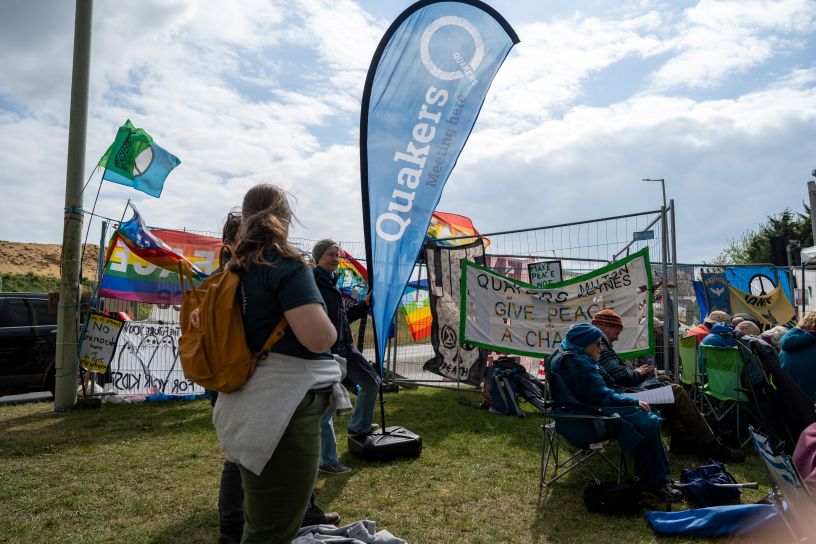Quakers apply to intervene in Judicial Review of the proscription of Palestine Action
Quakers in Britain has applied to intervene in the judicial review of the proscription of Palestine Action as a terrorist organisation, saying the ban has undermined their freedom of religion.

Quakers are concerned that vague proscription laws and inconsistent policing may mean a legitimate act of protest could be seen as a serious criminal offence.
Freedom of thought, conscience and religion is protected by the Human Rights Act.
The government proscribed Palestine Action as a terrorist organisation in July and the High Court recently granted the direct-action group a judicial review of the proscription.
A judicial review challenges the lawfulness of a decision by a public authority.
The judge, Martin Chamberlain, agreed there were reasonable grounds to challenge the proscription under Articles 6, 10 and 11 of the Human Rights Act which protect the rights to a fair trial, freedom of expression and freedom of assembly.
Quakers in Britain has applied to intervene in that review.
In their grounds for application to intervene, Quakers in Britain say they are seeking to draw the Court's attention to four matters:
The impact of the proscription order on the Article 9 and 14 rights and Quakers and others with similar religious beliefs;
- The intended effect of the proscription order on the exchange of ideas;
- The public importance of this exchange of ideas to a functioning democracy which is restricted by the proscription order;
- Comparative matters in other (similar) jurisdictions.
Paul Parker, recording clerk for Quakers in Britain said: "We hope our intervention would assist the court by ensuring that it has our relevant evidence about the effect the proscription has had on our church."
Quakers in Britain are represented by law firm Leigh Day in their application to intervene. Leigh Day partner and joint head of human rights Jamie Beagent and solicitor Ellie Fawcett have instructed Sam Fowles, Chiara Cordone and Celia Reynolds of 39 Essex Chambers.
Quakers in Britain have been working for peace in Palestine and Israel for many years.
From the founding of the church in the seventeenth century some Quakers have been led by faith to act non-violently against unjust laws and practices. Quakers were part of the anti-slavery movement in the 19th century, the movement for nuclear abolition in the 20th century, and the campaign for equal (same sex) marriage in the 21st century.
Quakers take a clear stand against war and violence of any kind. This is rooted in their belief that every life is precious and that nonviolence is essential for resolving conflicts.
Seventeen Quakers were arrested by police on Saturday 9 August during a London protest about the decision to proscribe Palestine Action.